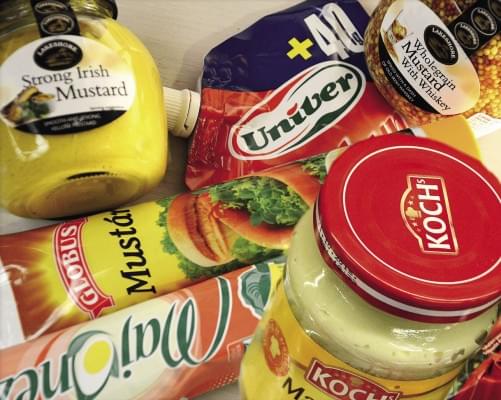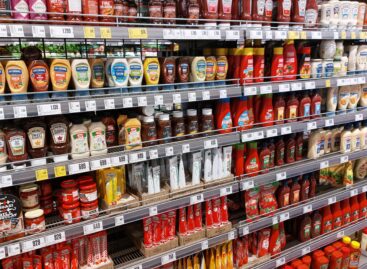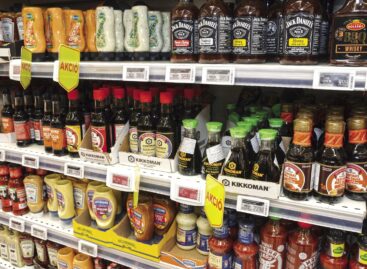Magazine: Spicier flavours from condiment makers
Easter is one of the driving forces behind mustard, ketchup, mayonnaise and horseradish sales. Last year sales expanded, in part because barbecues are becoming trendier, creating a third season for condiments (after Easter and Christmas) – especially for mustard and ketchup. Brigitta Domán, trade marketing manager of Unilever Magyarország Kft. told our magazine that the category is still very much price-sensitive.
Private label products perform steadily in the long run and discount stores’ importance is growing in the category’s sales. Last year Unilever revamped the design of its Globus mayonnaise and ketchup products. They were also given a non-spill cap and a self-closing valve. Plastic bottle remained the most widespread packaging solution in the category. Basic flavours dominate the segments, but certain brands experiment with putting flavoured, spicy and healthy products on the market. Zita Tóth-Csanádi, deputy CEO responsible for sales and marketing at Univer Product Zrt. informed us that last year they appeared in stores with a mayonnaise-based hamburger sauce and a light mayonnaise. The company gives special attention to innovation – be it improving the packaging or the product inside. Last year they were present on store shelves and in Horeca units with a record number of products. István Bacskai, director of commerce at Koch’s Torma Kft. talked to our magazine about the increased demand for flavoured products in the horseradish market. Plain, grated horseradish with vinegar still makes up for the bulk of sales, but cream, mayonnaise and wasabi versions by Koch are increasingly popular. Last year they even put an orange-cranberry flavoured horseradish product on the market. The proportion of sales in promotion is high and it keeps growing. Private label products sales are also expanding. We buy most of our horseradish in hyper- and supermarkets. Koch has been the distributor of Dijon mustard Beaufor for years. This year they launch Beaufor’s grape seed version. Glatz Hungary Kft. brings Irish Lakeshore mustards to Hungarian consumers. Lakeshore mustards are made manually in a village called Ballinderry, using the traditional Dijon method, from only the best natural ingredients and no additives. According to marketing manager Hilda Helyes, these wholegrain mustards come in small, 205-220g bottles and are available in tree versions: extra hot, stout and whiskey. At the moment the company doesn’t plan to add new products to the assortment. Instead, they wish to teach Hungarian consumers how to use these special products, for instance as cooking ingredients
Related news
A colourful selection of sauces on the Easter table
🎧 Hallgasd a cikket: Lejátszás Szünet Folytatás Leállítás Nyelv: Auto…
Read more >Cooked with mayonnaise
🎧 Hallgasd a cikket: Lejátszás Szünet Folytatás Leállítás Nyelv: Auto…
Read more >Related news
Lidl guarantees fairer prices for cocoa farmers
🎧 Hallgasd a cikket: Lejátszás Szünet Folytatás Leállítás Nyelv: Auto…
Read more >(HU) METRO Gasztro Fesztivál a SIRHA Budapesten – Élmény, inspiráció és valódi megoldások a HoReCa-szakmának
🎧 Hallgasd a cikket: Lejátszás Szünet Folytatás Leállítás Nyelv: Auto…
Read more >










